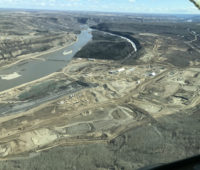This “Just Environments” contribution from Rick Hendriks, Philip Raphals, Karen Bakker, and Gordon Christie focuses on the adverse environmental, socio-legal, and economic impacts of Site C, a large-scale hydropower project in British Columbia. Based on in-depth analysis, the authors suggest that construction of Site C would violate First Nations Treaty rights, result in a loss of biodiversity, and generate greenhouse gas emissions. In addition, Site C is more expensive than other renewable alternatives. They call for the cancellation of the Site C project, raising broader questions about the role of hydropower in a carbon-constrained world.













